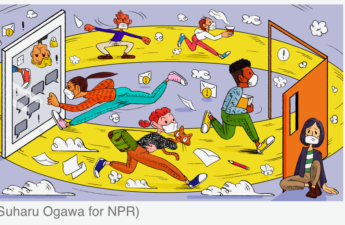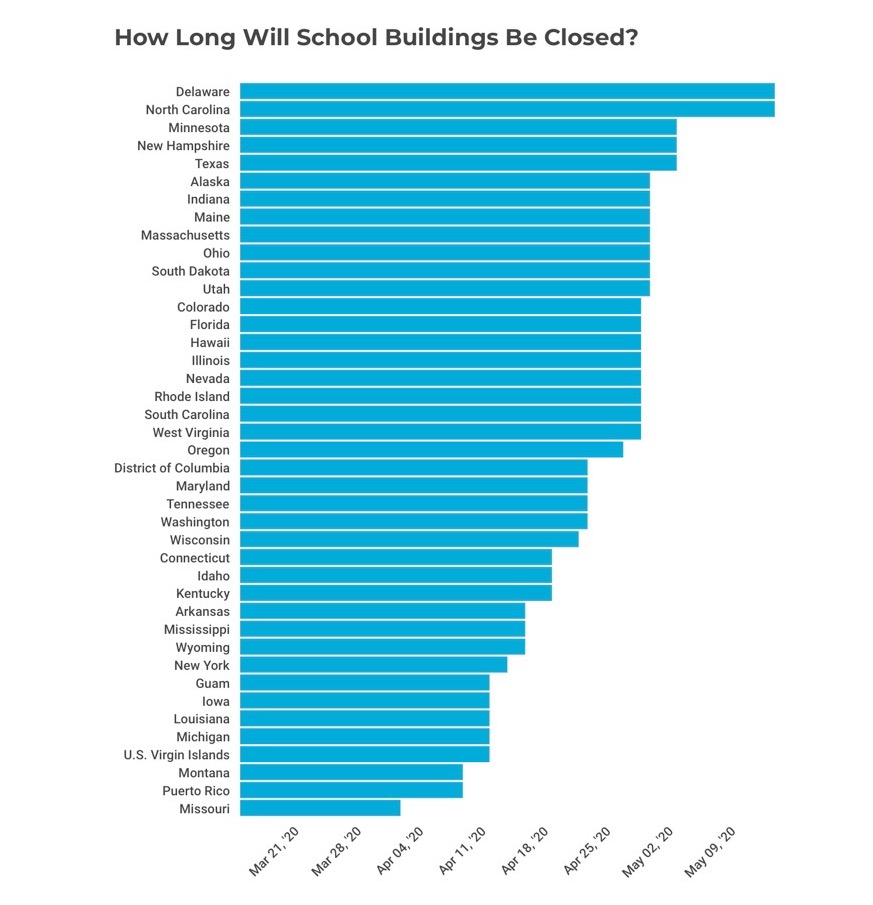And, as Bart Simpson exemplifies once again, a test without context can create conflicting results far removed from reality. Answering standardized multiple choice questions, at a single moment in the time-space continuum, subject to emotional reactions and human temperament, then interpreted in a formulaic analysis, identifying aptitude without ever seeking the view of the kid…
Tag: Teacher
COVID Crossword
In response to a reported case of COVID-19, K-12 school administrators and teachers in one California district must navigate the myriad, interlocking actions as outlined below: While everything works in theory, when created in a vacuum, the theory may be less useful in practice. One teacher shared that their school nurses, working in conjunction with…
Frustrations About Testing
To stymie cheating, teachers are changing assessments. Instead of simply reiterating the concepts learned, students are being asked to explain their answers or apply the concepts learned. However, no one shared the changes in how they’ll be assessed with students, inciting frustration amongst students as well as parents, and also teachers. Online, students have access…
Paradise Lost
Many are doing more with less, while living through the global, systemic retreat from “life as we knew it”, induced by a virus we cannot see. For some, though, doing the “same with less” is now their life’s maxim, having accepted substantial pay cuts to remain employed during the current economic upheaval. As Megan Casella…
Phased Return to Educational Normalcy
Leaders in the California Department of Education are proposing to reopen schools in phases, by grade level with elementary school students and teachers returning to campuses first. Elementary school students constitute the greatest number of K-12 students and the greatest percentage of schools in California, so prioritizing their return to school will serve the most…
Collaborators Come In Many Forms
Sometimes collaborators in an uber-competive academic environment may seem like an arch-rival, but is actually what we need to succeed.
Let’s All Imagine Genius
Lady Aberlin and Daniel Tiger sing the genius of Mr. Fred Rogers. In a short five minute song, they share that we all doubt ourselves, anxious that our differences are what makes us unacceptable to others. Instead, Lady Aberlin, Daniel Tiger and Mr. Rogers encourage us to imagine that our differences define our unique genius.…
Are we there yet?
No one knows when schools will reopen and “normal” life will resume. In the midst of the health emergency, ten states have simply closed all K-12 public schools and summarily ended their school year—Arizona, New Mexico, Oklahoma, Kansas, Indiana, Michigan, Alabama, Georgia, Virginia, and Vermont. However, for the other 40 states, the ending of school…
Who’s the Class Clown?
Teachers got jokes Some advice for those students wanting to be the next Jack Ryan: If you’re looking to hide top secret information, insert it into a syllabus or an assignment’s instructions. No one will ever read it. — Typical EduCelebrity (@EduCelebrity) December 2, 2019 And, just to shake things up for those parents who…
UC Berkeley Adds Letters of Recommendation for Fall 2016 Freshman Admissions
For Fall 2016 freshmen admissions, the University of California Berkeley will be accepting up to two letters of recommendation from selected applicants. In November 2015, some applicants will received emailed invitations to submit letters of recommendation. Submitting the letters of recommendation will be optional; therefore, no freshman applicant, including those who do not receive an…
“When You Cheat You Only Hurt Yourself”
Although, generally cast in moral terms, academic cheating can be explained by examining practicality and circumstance, rather than attributing to simply a character weakness. Understanding when people cheat can help show the complexity of why people cheat. In 2012, 125 Harvard undergraduates were investigated for sharing answers on a take home final exam, and approximately…
Ahead of the Curve: December 3, 2013
From the News: Student Exchanges Between U.S. and Other Countries Rise to Record, New York Times November 17, 2013 College On The House, New York Times November 29, 2013 SF [San Francisco] Seeks Injunction to Stop CCSF [City College of San Francisco] Closure, San Francisco Chronicle November 25, 2013 From Our Clients: College Applications &…
Ahead of the Curve: November 7, 2013
From the News: Black and White and in the Red: Student Newspapers Scurry to Make Ends Meet, New York Times October 31, 2013 Why Teach English? The New Yorker August 27, 2013 UC Classes Too Big, Teacher Aides Too Few, Report Says, San Francisco Chronicle November 6, 2013 [Note: UC refers to the University of…
Learning with a Purpose
Let the semester unfold slowly–looking to make adjustments to your learning process–as your interactions with both the teacher and your other classmates set the tone for your learning experience. This is easier said than done, especially in the later years of one’s youth, when influence creep seems to be in full swing with the attendant…
The Great Math Divide
When a math grade goes south, often parents assume an academic tutor is the answer, as the problem must be a lack of understanding. Students often draw the same conclusion, under the reasoning that the “teacher can’t teach.” The latter sentiment of the student is what needs further examination; for while the student may…







